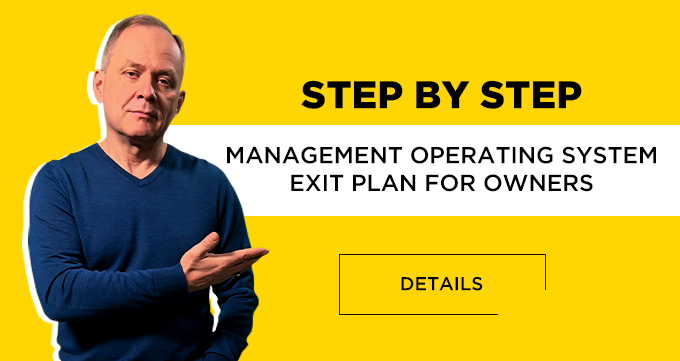5 Mistakes That Undermine Business From Within
In conditions of constant turbulence, even an experienced CEO can make a strategic mistake that will cost the business dearly. This is especially true for those who started small and haven't restructured their thinking. Sabotage, ineffective delegation, blind faith in partnerships – these are not external threats, but consequences of illusions that business owners believe in. In this article, I will analyze 5 common misconceptions that hinder company growth and require a systemic review.
- "A Stable Small Business is Already Success" For many business owners, the idea of "I have enough to live on and that's good" becomes a brake. Small business is not the finish line, but a temporary stage. At this level, it is practically impossible to build an effective linear management structure, ensure task delegation, and scale. Consulting practice shows that small scale is most often associated with constant overload, high employee turnover, and chaos in operations. In such a situation, even an executive director cannot build a system, and everything remains dependent on the owner.
- "A Partner is an Anchor of Confidence" At the start, many entrepreneurs look for a partner not out of functional necessity, but for emotional support. But unsystematic partnerships, especially without clear roles, pose a big risk. One of the most frequent consulting requests is exiting a toxic partnership that drains resources and hinders development. A true partner is someone who strengthens the business's strong points, not the owner's fear. If you cannot clearly articulate why you need a partner, then you don't need one.
- "Fewer People Mean Fewer Expenses" This is flawed logic. Business is not about saving money, but about growth through a team. A CEO cannot be a salesperson, a financier, and a marketer all at once. Moreover, this model provokes delegation sabotage. When a leader seemingly delegates tasks but controls everything himself. A commercial director is not an "expensive employee," but a point of profit growth if given the right levers. By operating with a small team, the owner himself becomes an obstacle to the growth of his own business.
- "Copy the Successful" I often encounter a common mistake where owners blindly copy the steps of corporations. But what works in a structure of 1000 people will not work in a company of 5 employees. Instead of imitating top leaders, study how these leaders acted at the beginning. The early strategies and mistakes of successful entrepreneurs are most valuable to an owner in the startup and initial growth phase.
- "We Need to Make a Revolution" Trying to create something "completely new," many forget that customers pay not for uniqueness, but for solving their problems. A unique product is not always needed. The most successful projects are built not on inventions, but on a clear understanding of demand. A commercial director must see what is actually selling, not what theoretically "could blow up the market." Competent development begins with a product that is already in demand, and only then its improvement and scaling.
What's Next?
If you are a business owner, CEO, or executive director, it is important to regularly conduct a "thinking audit" and get rid of strategic illusions. These are the mistakes that most often cause stagnation. At the link https://go.bbooster.online/qrph you can use my free guide to a systemic business. There I share my experience in creating and developing companies, so that with clear examples, you can make your company systemic, free yourself from chaos, and scale multiply.
Have you read the article and recognized yourself somewhere? Making mistakes is normal. Mistakes are inevitable in business, but valuable experience can be gained from them. I wrote more about this on my Telegram channel https://t.me/alexander_visotsky/2558

